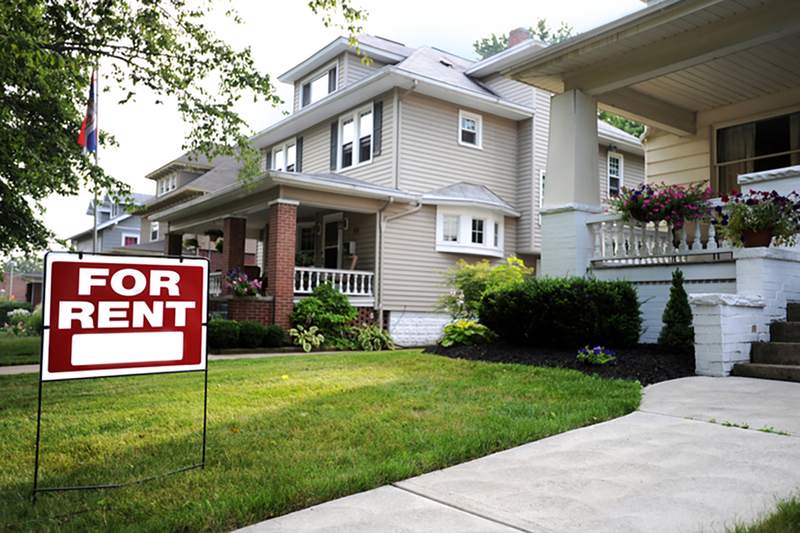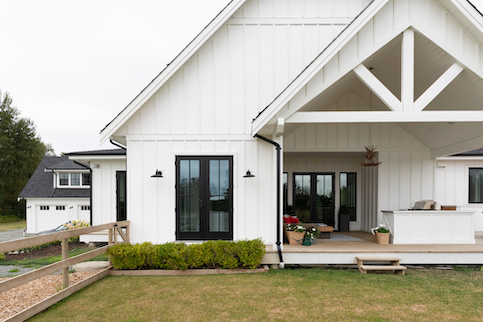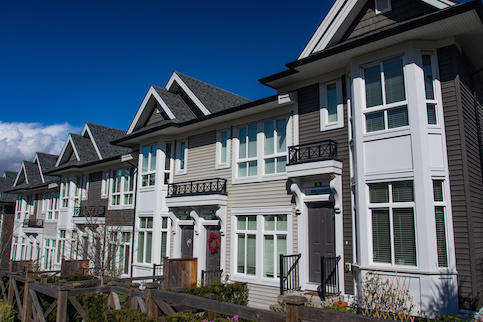Flipping houses involves buying homes with the intention of reselling them for a profit. Although this can be a lucrative real estate investing strategy, the cost of home renovations to increase the value of properties can be expensive. Moreover, traditional financing options aren’t always available.
In this article, we’ll discuss the major costs associated with house flipping, loan options for flipping houses and how to get approved for one. Then, we’ll explore tips to help new investors finance their house-flipping projects.
How Much Does It Cost To Flip A House?
The first thing you need to know if you’re new to the space and looking into flipping a house is that it can be quite expensive. You’ll want to be on financially stable ground before you decide to invest in flipping houses. The costs involved break down into several categories:
- Down payment: Whether you get a traditional mortgage loan or another source of financing, the down payment will be one of the biggest costs. Depending on the loan you get, the down payment can be as low as 3% – 3.5%. However, the down payment may be significantly higher if you turn to other funding sources.
- Cost of financing: In today’s market, you may secure a mortgage with a 6% – 8% interest rate depending on the loan’s On the other hand, the interest rates on hard money loans, which are commonly used for house flipping, can easily reach 15% or higher.
- Homeowners insurance: You may only own the house for a short time, but you’ll still need a homeowners insurance policy to protect your investment until you can sell it. Your lender will likely require a policy if the house is being used as collateral.
- Real estate taxes: Property taxes and real estate transfer taxes also need to be factored into the equation. Even if you only own the property for a short time, you’ll still be responsible for applicable taxes.
- Marketing: When it comes time to sell, you’ll either foot the bill to market the property on your own or pay a real estate agent a commission – usually around 6%. Either way, DIY marketing or hiring an agent can eat into your profit margin.
- The cost of renovations: The last big expense to consider is the cost of renovations. The changes and repairs you make can have a big effect on your bottom line. For example, renovating the kitchen may end up being a lot less expensive than adding a new wing to the house.
There are tons of tips and tricks experienced house flippers use to save money. While the cost of purchasing, maintaining, rehabbing and selling the home can add up, how you pay for these expenses can make a big difference. Whether you finance or flip a house with cash, you’ll need upfront capital to make a project happen.
One estimate places the overall cost of flipping a home at 10% of a home’s purchase price. However, the cost can vary depending on what upgrades you make and how you finance your investment. Some investors believe you should leave wiggle room in the budget by never paying more than 70% of the after-repair value of the property. Some house flippers prefer to budget carefully for the expenses of each house. That said, it’s important to leave some margin for unexpected costs.
See What You Qualify For
Buy A Home
Discover mortgage options that fit your unique financial needs.

Refinance
Refinance your mortgage to have more money for what matters.
Tap Into Equity
Use your home’s equity and unlock cash to achieve your goals.
Best Types Of Loans For Flipping Houses
The odds are good that you’ll need financing for your house-flipping projects.
Here are some of the most common types of financing borrowers rely on:
Hard Money Loans
One common type of loan used in house flipping is a hard money loan. A hard money loan can be easier to qualify for because the lender isn’t looking primarily at your credit. Hard money lenders may pull your credit report and check your credit score and credit history before calculating your debt-to-income ratio (DTI), but they’re not only looking at your credit score. The amount of equity you have in the home is extremely important for a hard money loan. Since the house is being used as collateral, a higher down payment may be required.
Since you won’t need to go through a lengthy underwriting process, the approval time for a hard money loan may be much faster, and you may be able to get one with dings on your credit. The downside is that origination fees and interest rates may be much higher than a traditional mortgage.
Traditional Mortgage Loans
There are several types of traditional mortgage loans you may be able to take advantage of depending on the level of flipping you want to do. Let’s run through a few options:
- Renovation loans: Renovation loans have traditional mortgage rates and require appraisals. These loans are useful for home improvements on a completed house. The renovation cost is built into the loan because it’s appraised based on the property’s after-repair value (ARV).
- Cash-out refinance: With a cash-out refinance, you take existing equity out of another home to invest in the home you plan to flip. This may be one of the cheapest financing options because it’s based on an existing primary lien. Because the house is already complete, there is less risk for lenders.
Private Loans
Loans from private lenders may be a good option, but they often require an existing banking relationship. If you have a long history with a private lender, they’ll likely determine that lending you money isn’t a significant risk – especially if you have an existing financial relationship with them.
The advantage of going with a private lender is that they may have more options for financing terms.
Personal Loan
The advantage of a personal loan is that there’s no collateral involved. The loan is based on your credit score, credit history and DTI. Approval is relatively fast, and you can get your money in as little as a day. The only downside is that the interest rate may be higher than it is for a mortgage.
Home Equity Loan
A home equity loan works for homeowners who want to use the equity in their homes to invest in a property flip, but don’t want to touch their primary mortgage because they like the terms of the loan. Home equity loans are second mortgages. As a result, you’ll end up with a second monthly mortgage payment.
The potential downside of home equity loans is that rates tend to be higher than they are for primary residence mortgages because the primary mortgage lender is first in line to recoup the cost of their loan in the event of a default. For this reason, it’s important to do the math and determine whether a home equity loan is a cost-effective solution for you.
Home Equity Line Of Credit (HELOC)
HELOCs are like credit cards, but your home is used as collateral. With a HELOC, you get a revolving credit line based on the equity in your existing home. The credit line has two phases: a draw period and a repayment period.
The draw period typically lasts up to 10 years. During this time frame, you only pay interest on the money you withdraw. You can also pay funds back into the HELOC to withdraw again for your next project.
During the repayment period, which may last as long as 20 years, your loan is fully amortized and you pay back both principal and interest. During the repayment period, you can no longer draw from the line of credit.
Bridge Loans
Bridge loans are short-term loans that serve as a stopgap between when you need funding and when you can secure longer-term financing. They typically have high interest rates, but you can get funding more quickly while waiting on the money from a traditional mortgage or another funding source. The proceeds from the mortgage are then used to pay off the bridge loan.
The risk with bridge loans occurs if your longer-term financing falls through. If that happens, you’re stuck paying a short-term loan at a higher interest rate.
Crowdfunding
Crowdfunding your property-flipping venture has a couple of advantages: You don’t have to fund the whole thing yourself, and you don’t need to qualify for a loan. You can also fund your project fairly quickly if enough investors jump on board.
But crowdfunding isn’t for everyone. There are several downsides. For starters, you have to market your project. You’ll need to pitch your business plan and appreciate that only a few people may take you up on your offer. Additionally, you might get a smaller percentage of profit because your investors are entitled to their share under your arrangement. Finally, if the project is unsuccessful, you’ll have to deal with unhappy investors.
How To Get A Loan For Flipping Houses
Whether you’re getting a loan from a traditional lending source or a hard money lender, some aspects of the loan process will be unique to getting a loan to flip a house. Let’s run through this:
- Have your blueprints ready: Because the purpose of the loan is to renovate a home, you’ll need your blueprints and estimates from contractors and anyone else you’re working with to calculate how much the renovation is going to cost.
- Calculate your ARV: The lender will also be very interested in the after-repair value because you’ll pay off the loan with the proceeds from the sale of the house after the repair or renovations. The loan will be based on the new value of the home, which is initially determined on paper.
- Know the market: An appraiser will assign a value to your home after its renovations based on properties with similar features to your newly renovated property. You’ll need to analyze recent comparable sales to avoid surprises.
- Determine your loan-to-value ratio (LTV): LTV compares the amount of a loan to the overall value of a When you’re borrowing to flip a house, your LTV will be used to help decide the mortgage rate on any financing for the initial purchase of a house. If everything else is held equal, your rate will be higher with a lower down payment.
- Look at your loan-to-cost ratio (LTC): LTC is like LTV, but it’s typically used for commercial loans. This is preferred by some lenders depending on the type of construction you’re doing.
Find A Mortgage Today and Lock In Your Rate!
Get matched with a lender that will work for your financial situation.
Can Inexperienced Flippers Qualify For House Flipping Loans?
Inexperienced flippers will likely find it challenging to get approved for house-flipping loans. If you don’t have a ton of experience flipping homes, lenders may determine there’s more of a chance that you may default on your loan.
When new house flippers are starting out, they should prioritize knowing the market, having their project plan and business case outlined with blueprints and having access to some capital. There’s a good chance you’ll make higher down payments and pay higher interest rates. When you’re first starting out, you may need to work with hard money lenders rather than traditional lenders that offer consumer-friendly forms of financing. House flipping can be a challenging business. Weigh your options carefully before purchasing a property.
The Bottom Line
House flipping is the business of repairing and renovating homes for profit. There are several costs involved, including acquiring the property and renovations, marketing, insurance and taxes.
When it comes to financing your project, traditional mortgages offer some of the lowest rates, but they can be more difficult and time-consuming to qualify for. Hard money lenders may put less weight on your credit score, but they charge higher interest rates. Other funding options include personal and bridge loans, home equity loans and HELOCs.
If you want to start flipping houses, have a plan in place and know the market. It also helps to have some money in reserve to give lenders more confidence in you as a borrower. It can be a lucrative investment opportunity if you’re committed and prepared.
Find A Mortgage Today and Lock In Your Rate!
Get matched with a lender that will work for your financial situation.

Victoria Araj
Victoria Araj is a Staff Writer for Rocket Companies who has held roles in mortgage banking, public relations and more in her 15-plus years of experience. She has a bachelor’s degree in journalism with an emphasis in political science from Michigan State University, and a master’s degree in public administration from the University of Michigan.












